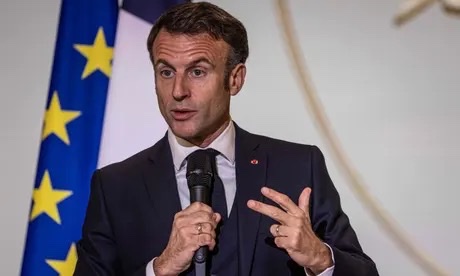The French parliament successfully passed an immigration bill, endorsed by President Emmanuel Macron’s government, despite a significant rebellion within his own party influenced by the far right’s backing of the toughened legislation. The lower house secured a broad majority in favor of the legislation, with the ruling party ultimately not relying on the far-right National Rally (RN), led by Marine Le Pen, to secure the bill’s passage.
Several amendments have heightened immigration measures, drawing criticism from the left, which accuses the government of yielding to pressure from the far right. Although Le Pen supported the reinforced bill, key left-leaning members of Macron’s Renaissance Party and allied factions signaled a withdrawal of support, with reports of several ministers contemplating resignation.
Le Pen, a three-time presidential candidate, hailed it as an “ideological victory” for the National Rally. Despite previous plans to vote against or abstain from the bill, the RN’s endorsement surprised many in the media, labeling it a “kiss of death” for Macron’s party.
The legislation, initially voted down without debate last week, faced a major setback for Macron. The Senate had previously passed the bill, with the lower house approving it with 349 in favor and 186 against. A key provision conditions social security benefits for foreigners on five years of residence in France, or 30 months for those with jobs. The law also allows for the negotiation of migration quotas and includes measures for stripping dual-national convicts of French nationality.
Amid concerns within Macron’s party, the president called for a meeting at the Elysee palace before the vote. Macron indicated he would submit the bill for a new reading instead of promulgating it if it only passed with support from Le Pen’s RN. Health Minister Aurelien Rousseau, Higher Education Minister Sylvie Retailleau, and Housing Minister Patrice Vergriete met with Prime Minister Elisabeth Borne, warning of potential resignations.
“The majority has stood together; the far right’s plan has failed,” said Borne. Rousseau submitted a letter of resignation, and the government’s majority in parliament has been precarious since the legislative elections following Macron’s re-election in 2022. Passing the legislation was crucial for Macron, who cannot seek re-election in 2027 after two consecutive terms.


